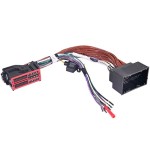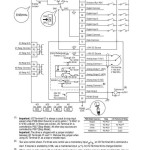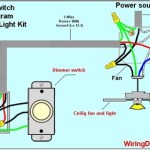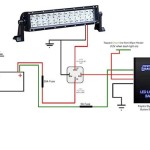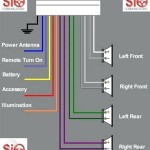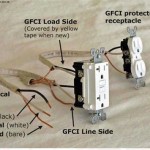An Electrical Wiring Code is a set of regulations that govern the installation and maintenance of electrical wiring. These codes are developed by expert organizations, such as the National Fire Protection Association (NFPA), to ensure the safety of electrical systems. For example, the NFPA’s NEC (National Electrical Code) is widely used in the United States and requires that electrical wiring be installed in a manner that minimizes the risk of fire and shock.
Electrical Wiring Codes are essential for ensuring the safety of electrical systems. They provide guidelines for the proper installation, maintenance, and repair of electrical wiring, which helps to prevent fires, shocks, and other electrical hazards. One of the key historical developments in the field of electrical wiring codes was the establishment of the NFPA in 1896. The NFPA has been instrumental in the development and adoption of electrical wiring codes, which have played a major role in improving the safety of electrical systems.
In the following article, we will explore the various aspects of Electrical Wiring Codes, including their history, benefits, and importance. We will also discuss some of the key challenges and trends in the field of electrical wiring code development.
Electrical Wiring Codes are essential for ensuring the safety of electrical systems. They provide guidelines for the proper installation, maintenance, and repair of electrical wiring, which helps to prevent fires, shocks, and other electrical hazards.
- Safety: Electrical Wiring Codes are designed to protect people and property from electrical hazards.
- Reliability: Electrical Wiring Codes help to ensure that electrical systems are reliable and operate as intended.
- Efficiency: Electrical Wiring Codes can help to improve the efficiency of electrical systems, reducing energy consumption.
- Compliance: Electrical Wiring Codes are often required by law, and compliance is essential for obtaining permits and insurance.
- Standards: Electrical Wiring Codes provide a common set of standards for the electrical industry, ensuring consistency and quality.
- Codes and Regulations: Electrical Wiring Codes are continually updated to reflect the latest advances in technology and safety.
- Inspections: Electrical Wiring Codes are used by inspectors to ensure that electrical systems are installed and maintained safely.
- Enforcement: Electrical Wiring Codes are enforced by local authorities to protect the public from electrical hazards.
- Training: Electrical Wiring Codes are used to train electricians on the proper installation and maintenance of electrical systems.
- Education: Electrical Wiring Codes are used to educate the public about electrical safety.
These are just a few of the key aspects of Electrical Wiring Codes. By understanding and following these codes, we can help to ensure the safety and reliability of our electrical systems.
Safety
Electrical Wiring Codes are essential for ensuring the safety of electrical systems. They provide guidelines for the proper installation, maintenance, and repair of electrical wiring, which helps to prevent fires, shocks, and other electrical hazards. One of the most important aspects of Electrical Wiring Codes is their focus on safety.
- Electrical Fires: Electrical Wiring Codes are designed to minimize the risk of electrical fires. They require that electrical wiring be installed in a manner that prevents overheating and arcing, which can lead to fires. They also require that electrical systems be properly grounded, which helps to prevent electrical shocks.
- Electrical Shocks: Electrical Wiring Codes are designed to protect people from electrical shocks. They require that electrical wiring be insulated and properly grounded, which helps to prevent people from coming into contact with live electrical wires. They also require that electrical outlets and switches be properly installed and maintained, which helps to prevent people from being shocked.
- Electrical Explosions: Electrical Wiring Codes are designed to prevent electrical explosions. They require that electrical wiring be installed in a manner that prevents sparks and arcs, which can lead to explosions. They also require that electrical equipment be properly installed and maintained, which helps to prevent electrical explosions.
- Arc Flash: Electrical Wiring Codes are designed to protect workers from arc flash. Arc flash is a dangerous electrical explosion that can occur when an electrical arc is created between two energized conductors. Electrical Wiring Codes require that electrical equipment be properly installed and maintained, and that workers wear appropriate protective gear when working on electrical systems, which helps to prevent arc flash.
These are just a few of the ways that Electrical Wiring Codes help to protect people and property from electrical hazards. By following these codes, we can help to ensure the safety of our electrical systems.
Reliability
Electrical Wiring Codes are essential for ensuring the reliability of electrical systems. They provide guidelines for the proper installation, maintenance, and repair of electrical wiring, which helps to prevent electrical failures and malfunctions. One of the most important aspects of Electrical Wiring Codes is their focus on reliability.
Electrical Wiring Codes require that electrical wiring be installed in a manner that minimizes the risk of electrical failures. They require that electrical wiring be properly sized and installed, and that it be protected from damage. They also require that electrical systems be properly grounded, which helps to prevent electrical surges and other problems.
By following Electrical Wiring Codes, we can help to ensure that our electrical systems are reliable and operate as intended. This can help to prevent electrical outages, equipment damage, and even electrical fires. In addition, reliable electrical systems can help to improve productivity and efficiency.
Here are some real-life examples of how Electrical Wiring Codes help to ensure the reliability of electrical systems:
- Electrical Wiring Codes require that electrical wiring be properly sized. This helps to prevent electrical wires from overheating, which can lead to electrical fires.
- Electrical Wiring Codes require that electrical wiring be properly installed. This helps to prevent electrical shorts and other problems that can lead to electrical failures.
- Electrical Wiring Codes require that electrical systems be properly grounded. This helps to prevent electrical surges and other problems that can damage electrical equipment.
These are just a few examples of how Electrical Wiring Codes help to ensure the reliability of electrical systems. By following these codes, we can help to ensure that our electrical systems are safe and reliable.
Efficiency
Electrical Wiring Codes are essential for ensuring the safety, reliability, and efficiency of electrical systems. By providing guidelines for the proper installation, maintenance, and repair of electrical wiring, Electrical Wiring Codes can help to reduce energy consumption and improve the overall efficiency of electrical systems.
- Proper Sizing: Electrical Wiring Codes require that electrical wiring be properly sized for the load it will carry. This helps to prevent energy losses due to overheating and reduces the risk of electrical fires.
- Energy-Efficient Lighting: Electrical Wiring Codes encourage the use of energy-efficient lighting fixtures and bulbs. This can significantly reduce energy consumption and lower electricity bills.
- Phantom Loads: Electrical Wiring Codes address the issue of phantom loads, which are electrical devices that continue to draw power even when they are turned off. By requiring the use of power strips and surge protectors, Electrical Wiring Codes can help to reduce phantom loads and save energy.
- Renewable Energy: Electrical Wiring Codes are being updated to include provisions for the installation of renewable energy systems, such as solar panels and wind turbines. This can help to reduce reliance on fossil fuels and promote the use of clean energy.
By following Electrical Wiring Codes, we can help to improve the efficiency of our electrical systems and reduce our energy consumption. This can save money on electricity bills, reduce our carbon footprint, and help to protect the environment.
Compliance
Compliance with Electrical Wiring Codes is a crucial aspect of ensuring the safety and reliability of electrical systems. Electrical Wiring Codes are often required by law, and compliance is essential for obtaining permits and insurance. Failure to comply with Electrical Wiring Codes can result in fines, penalties, and even criminal charges.
- Building Permits: Electrical Wiring Codes are often incorporated into building codes, which require that electrical systems be inspected and approved by local authorities before a building permit can be issued. Compliance with Electrical Wiring Codes ensures that electrical systems are installed safely and according to code.
- Insurance: Insurance companies require that electrical systems be installed and maintained in accordance with Electrical Wiring Codes. This is because insurance companies know that compliance with Electrical Wiring Codes reduces the risk of electrical fires and other hazards. If an electrical system is not installed or maintained in accordance with Electrical Wiring Codes, the insurance company may deny a claim or cancel the policy.
- Legal Liability: Building owners and property managers are legally liable for the safety of their electrical systems. If an electrical system is not installed or maintained in accordance with Electrical Wiring Codes and someone is injured or killed as a result, the building owner or property manager could be held liable.
- Safety: Compliance with Electrical Wiring Codes is essential for ensuring the safety of electrical systems. Electrical Wiring Codes are designed to prevent electrical fires, shocks, and other hazards. By following Electrical Wiring Codes, we can help to ensure that our electrical systems are safe and reliable.
These are just a few of the reasons why compliance with Electrical Wiring Codes is so important. By complying with Electrical Wiring Codes, we can help to ensure the safety and reliability of our electrical systems, obtain the necessary permits and insurance, and avoid legal liability.
Standards
Electrical Wiring Codes are essential for ensuring the safety and reliability of electrical systems. They provide guidelines for the proper installation, maintenance, and repair of electrical wiring, which helps to prevent electrical fires, shocks, and other hazards.
One of the most important aspects of Electrical Wiring Codes is their focus on standards. Electrical Wiring Codes provide a common set of standards for the electrical industry, ensuring consistency and quality in the installation and maintenance of electrical systems. This is essential for ensuring the safety and reliability of electrical systems, as it helps to prevent electrical hazards and ensures that electrical systems are installed and maintained in a consistent manner.
For example, Electrical Wiring Codes specify the minimum size of electrical wire that can be used for a given application. This helps to ensure that electrical wires are properly sized for the load they will carry, which prevents overheating and reduces the risk of electrical fires. Electrical Wiring Codes also specify the proper way to install electrical outlets and switches, which helps to prevent electrical shocks and other hazards.
By following Electrical Wiring Codes, electricians can help to ensure that electrical systems are installed and maintained safely and reliably. This can help to prevent electrical hazards, reduce the risk of electrical fires and shocks, and ensure that electrical systems operate as intended.
Codes and Regulations
Electrical Wiring Codes are essential for ensuring the safety and reliability of electrical systems. They provide guidelines for the proper installation, maintenance, and repair of electrical wiring, which helps to prevent electrical fires, shocks, and other hazards. One of the most important aspects of Electrical Wiring Codes is that they are continually updated to reflect the latest advances in technology and safety.
This is critical because the electrical industry is constantly evolving, with new technologies and materials being developed all the time. Electrical Wiring Codes need to be updated to keep pace with these changes, ensuring that they continue to provide the highest level of safety and protection. For example, the National Electrical Code (NEC) is updated every three years to incorporate the latest advances in technology and safety.
The NEC is the most widely used Electrical Wiring Code in the United States. It is used by electricians, contractors, inspectors, and other professionals to ensure that electrical systems are installed and maintained safely. The NEC is continually updated to reflect the latest advances in technology and safety, such as the use of new materials, new construction methods, and new electrical devices.
By using Electrical Wiring Codes that are continually updated to reflect the latest advances in technology and safety, we can help to ensure that our electrical systems are safe and reliable. This can help to prevent electrical fires, shocks, and other hazards, and can also help to improve the efficiency and performance of our electrical systems.
Inspections
Inspections are a critical part of the Electrical Wiring Code (EWC). They help to ensure that electrical systems are installed and maintained safely, which helps to prevent electrical fires, shocks, and other hazards. Electrical inspectors use the EWC as a guide to ensure that electrical systems meet the minimum safety standards.
- Visual Inspection: Inspectors will visually inspect electrical systems to look for any obvious violations of the EWC. This includes looking for damaged wires, improper connections, and overloaded circuits.
- Electrical Testing: Inspectors may also perform electrical testing to verify that electrical systems are functioning properly. This includes testing the continuity of circuits, the insulation resistance of wires, and the grounding system.
- Documentation: Inspectors will document their findings in a report. This report will be provided to the property owner or manager, and it will identify any violations of the EWC that need to be corrected.
- Follow-Up Inspections: Inspectors may conduct follow-up inspections to verify that any violations of the EWC have been corrected.
Inspections are an important part of the EWC because they help to ensure that electrical systems are safe. By identifying and correcting violations of the EWC, inspectors can help to prevent electrical fires, shocks, and other hazards.
Enforcement
Electrical Wiring Codes (EWCs) are essential for ensuring the safety and reliability of electrical systems. They provide guidelines for the proper installation, maintenance, and repair of electrical wiring, which helps to prevent electrical fires, shocks, and other hazards. Enforcement of EWCs by local authorities is a critical component of public safety, as it helps to ensure that electrical systems are installed and maintained in a safe manner.
Local authorities enforce EWCs through a variety of means, including inspections, permits, and fines. Inspectors visit homes and businesses to verify that electrical systems are installed and maintained in accordance with the EWC. Permits are required for new electrical installations and major repairs. Fines can be imposed for violations of the EWC.
Enforcement of EWCs has a number of benefits. First, it helps to prevent electrical fires. Electrical fires are a leading cause of property damage and death in the United States. By ensuring that electrical systems are installed and maintained safely, EWCs help to reduce the risk of electrical fires. Second, enforcement of EWCs helps to prevent electrical shocks. Electrical shocks can be fatal, and even non-fatal shocks can cause serious injuries. By ensuring that electrical systems are installed and maintained safely, EWCs help to reduce the risk of electrical shocks. Third, enforcement of EWCs helps to protect the public from other electrical hazards, such as electrocution and arc flashes.
There are a number of real-life examples of how enforcement of EWCs has protected the public from electrical hazards. For example, in 2017, an electrical fire in a New York City apartment building killed 13 people and injured dozens more. The fire was caused by a faulty electrical outlet. If the EWC had been enforced properly, the outlet would have been replaced before it could cause a fire. In another example, in 2018, an electrical shock in a California home killed a 2-year-old boy. The shock was caused by a frayed electrical cord. If the EWC had been enforced properly, the cord would have been repaired or replaced before it could cause a shock.
Enforcement of EWCs is a critical component of public safety. By ensuring that electrical systems are installed and maintained safely, EWCs help to prevent electrical fires, shocks, and other hazards. Local authorities should continue to enforce EWCs vigorously in order to protect the public from electrical hazards.
Training
As stated earlier, Electrical Wiring Codes (EWCs) are essential for ensuring the safety and reliability of electrical systems. They provide guidelines for the proper installation, maintenance, and repair of electrical wiring, which helps to prevent electrical fires, shocks, and other hazards. Training electricians on the proper installation and maintenance of electrical systems is a critical component of ensuring that EWCs are followed and that electrical systems are safe.
Electricians who are properly trained in EWCs are more likely to install and maintain electrical systems safely and according to code. This is important because electrical systems that are not installed and maintained properly can pose a serious risk of electrical fires, shocks, and other hazards. In fact, according to the National Fire Protection Association (NFPA), electrical fires are the leading cause of home fires in the United States.
There are many real-life examples of how training electricians on EWCs has helped to prevent electrical hazards. For example, in 2017, an electrical fire in a New York City apartment building killed 13 people and injured dozens more. The fire was caused by a faulty electrical outlet. If the electrician who installed the outlet had been properly trained in EWCs, he would have known that the outlet was not installed properly and could have prevented the fire.
In addition to preventing electrical hazards, training electricians on EWCs can also help to improve the efficiency and reliability of electrical systems. Electricians who are properly trained in EWCs are more likely to be able to identify and correct problems with electrical systems before they become major hazards. This can help to prevent costly repairs and downtime.
Education
Electrical Wiring Codes (EWCs) are essential for ensuring the safety and reliability of electrical systems. They provide guidelines for the proper installation, maintenance, and repair of electrical wiring, which helps to prevent electrical fires, shocks, and other hazards. Education about EWCs is critical for ensuring the public’s safety, as it helps people to understand the importance of following EWCs and how to identify and avoid electrical hazards.
There are many ways that EWCs are used to educate the public about electrical safety. One common method is through public awareness campaigns. These campaigns use a variety of channels, such as print, radio, and television, to educate the public about the dangers of electrical hazards and the importance of following EWCs. Another method of education is through training programs for electricians and other electrical professionals. These programs teach electricians about the proper installation and maintenance of electrical systems according to EWCs. Additionally, many schools and universities offer courses on electrical safety, which can help to educate students about EWCs and electrical hazards.
Educating the public about EWCs has many benefits. First, it helps to prevent electrical fires, shocks, and other hazards. By understanding the dangers of electrical hazards and how to avoid them, the public can help to keep themselves and their families safe. Second, educating the public about EWCs can help to improve the efficiency and reliability of electrical systems. By understanding how electrical systems work and how to maintain them properly, the public can help to prevent costly repairs and downtime.










Related Posts

